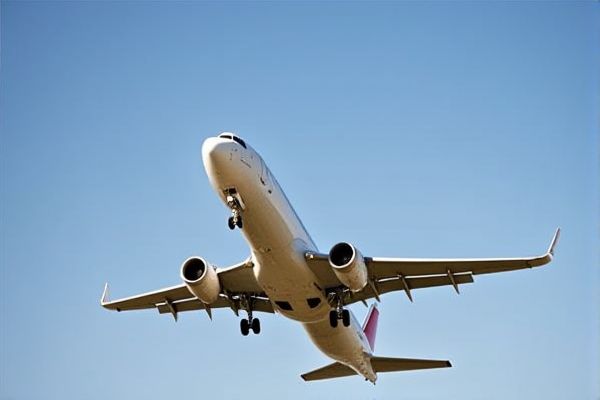
Zambia's aviation sector is growing, offering various job opportunities in areas such as airline operations, aircraft maintenance, and air traffic control. Major airlines and aviation companies are actively seeking skilled professionals, including pilots, engineers, and ground staff to support their expanding operations. Training programs and aviation schools within Zambia provide vital qualifications, helping to prepare candidates for competitive roles in the industry. The government's emphasis on enhancing airport infrastructure and air travel connectivity further boosts employment prospects in this dynamic field.
Job Description
Aviation jobs in Zambia offer diverse opportunities in various sectors, including commercial airlines, cargo services, and maintenance organizations. Positions range from pilots and air traffic controllers to aircraft maintenance technicians and ground support staff, catering to both experienced professionals and entry-level candidates. The growing aviation sector in Zambia is driven by increased tourism and regional trade, resulting in a high demand for skilled personnel. Engaging with local aviation training institutions can enhance your qualifications and improve your job prospects in this expanding industry.
Requirement
Aviation jobs in Zambia require candidates to possess relevant qualifications and experience in fields such as aviation management, engineering, and operations. Familiarity with the aviation regulations set by the Zambia Civil Aviation Authority is essential for ensuring compliance and safety. Depending on the position, specific certifications, such as a pilot's license or aircraft maintenance technician certification, may be necessary. Strong communication skills and the ability to work in a team environment are highly valued in this dynamic industry.
Salary and Perks Expected
Aviation jobs in Zambia offer competitive salaries that can vary based on experience and specific roles within the industry. Entry-level positions may start with salaries ranging from ZMW 5,000 to ZMW 10,000 per month, while more experienced professionals such as pilots, engineers, and air traffic controllers can earn significantly higher, often exceeding ZMW 30,000 monthly. Perks associated with aviation jobs often include travel allowances, health insurance, and opportunities for professional development. The growing aviation sector in Zambia presents a promising landscape for career advancement and recruitment in various specialties.
Similar Job Names
- Pilot
- Aircraft Maintenance Engineer
- Air Traffic Controller
- Flight Operations Manager
- Aviation Safety Inspector
- Ground Handling Agent
- Airport Manager
- Air Freight Operations Coordinator
- Avionics Technician
- Flight Dispatcher
- Aviation Security Officer
- Airline Customer Service Agent
- Aircraft Fueling Technician
- Flight Training Instructor
- Aviation Project Manager
Job Expectation Concept
In Zambia, aviation jobs encompass a range of roles, including pilots, air traffic controllers, and maintenance technicians, each vital to the country's growing aerospace sector. Employers typically seek candidates with relevant certifications and training, reflecting the international standards upheld in aviation. As the Zambian aviation industry expands, opportunities increase, creating a competitive landscape for job seekers. Staying informed about industry trends and networking with professionals can enhance your prospects in securing a role within this dynamic field.
Career Advantage and Weakness
Aviation jobs in Zambia offer significant career advantages, including exposure to a growing airline industry and opportunities for professional development in a rapidly expanding sector. Access to international airlines operating in Zambia can enhance your networking potential and increase employability within the aviation field. However, challenges such as limited job availability and the high cost of aviation training can pose obstacles for individuals seeking to enter this profession. Moreover, the unpredictable economic climate may affect job stability and growth prospects in the aviation sector.
Important Thing Must Know
Aviation jobs in Zambia present diverse opportunities in a rapidly growing sector, driven by increased air travel and tourism. Key positions include pilots, air traffic controllers, aircraft engineers, and ground staff, each requiring specific qualifications and training. The Zambia Civil Aviation Authority (ZCAA) regulates the industry and ensures adherence to safety standards, making it essential for you to meet established requirements. Networking within local aviation communities can enhance your chances of finding job openings and gaining valuable insights. With Zambia's commitment to developing its aviation infrastructure, demand for skilled professionals will continue to rise.
Alternative Career Options
Zambia offers a variety of alternative career options for individuals interested in aviation beyond traditional pilot and flight attendant roles. Opportunities exist in air traffic control, where professionals ensure safe and efficient aircraft movement, a vital function within the aviation sector. Another pathway includes airport management, which involves overseeing operations, facilities, and services at airports, directly contributing to the travel experience. Additionally, you may explore roles in aviation safety and maintenance, ensuring that aircraft meet regulatory standards and remain operationally safe.
Companies List
- Zambian Airways
- Proflight Zambia
- Zambia Airports Corporation Limited
- Airwaves Aviation
- Zambezi Airlines
- Fastjet Zambia
- Zambian National Cargo Airline
- Zambian Civil Aviation Authority
- Zambia Air Force
- Lusaka International Airport
List of Ideal City
Lusaka, the capital of Zambia, boasts a growing aviation industry with numerous job opportunities in airlines and aviation support services. Ndola, located near the Copperbelt, features a prominent international airport that often seeks skilled aviation professionals. Livingstone, known for its proximity to Victoria Falls, also offers roles in tourism-related aviation operations. Kabwe, while smaller, contributes to the regional transport network, providing additional openings in more localized aviation positions.
 zambia-jobs.com
zambia-jobs.com